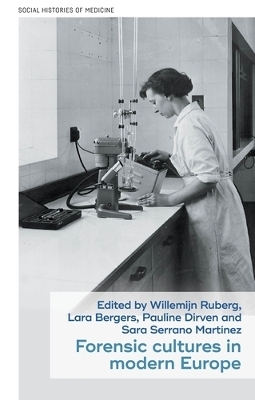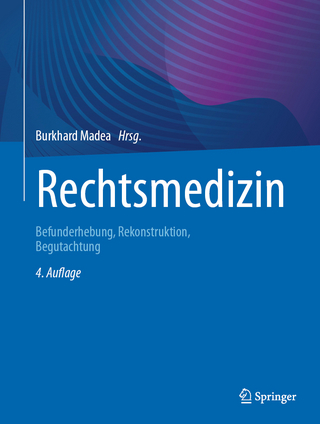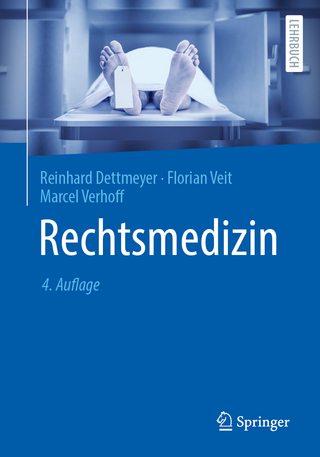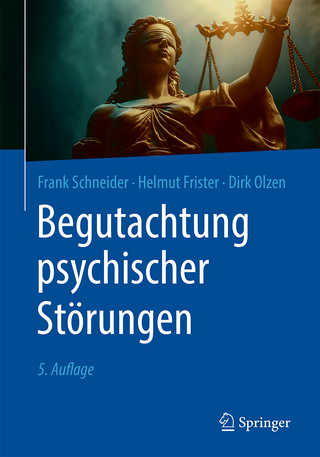
Forensic Cultures in Modern Europe
Manchester University Press (Verlag)
978-1-5261-7233-4 (ISBN)
This edited volume examines the performance and role of scientific experts in modern European courts of law and police investigations. It discusses cases from criminal, civil and international law to parse the impact of forensic evidence and expertise in different European countries. The contributors show how modern forensic science and technology are inextricably entangled with political ideology, gender norms and changes in the law and legal systems. Discussing fascinating case studies, they highlight how the ideology of authoritarian and liberal regimes has affected the practical enactment of forensic expertise. They also emphasise the influence of images of masculinity and femininity on the performance of experts and on their assessment of evidence, victims and perpetrators. This book is an important contribution to our knowledge of modern European forensic practices.
An electronic edition of this book is freely available under a Creative Commons (CC BY-NC-ND) licence. -- .
Lara Bergers is a PhD candidate in History at Utrecht University Pauline Dirven is a PhD candidate in History at Utrecht University Willemijn Ruberg is an Associate Professor of Cultural History at Utrecht University Sara Serrano Martínez is a PhD candidate in History at Utrecht University -- .
Introduction – Willemijn Ruberg
1 Blood will out: blood typing, forensic culture and gender in a 1950s Scottish paternity case — Alison Adam
2 A culture of testimony: the importance of ‘speaking witnesses’ in Dutch sexual crimes investigations and trials, 1930-1960 — Lara Bergers
3 The making of evidence after mass violence: Forensics in the aftermath of the Second World War — Taline Garibian
4 Teaching Grossian criminalistics in Imperial Germany — Heather Wolffram
5 Sober suits, bowler hats and white lab coats: Enclothed impartiality and the tailoring of a bourgeois expert persona in British courtrooms, 1920-60 — Pauline Dirven
6 Reassessing the legacy of Cesare Lombroso: Criminal anthropology in the expert testimony of Mario Carrara, 1910-30 — Franco Orlandi
7 Expert evidence and uncertainty in English infanticide trials, c. 1725-1945 — Rachel Dixon and Tony Ward
8 Forensic physicians and the Francoist prosecution of infanticide, c. 1939-1969: The case of the haemorrhage of the umbilical cord as cause of death — Sara Serrano Martínez
9 Doing law, psychiatric expertise and ‘crimes of passion’ in the Netherlands and Russia in the twentieth century — Volha Parfenchyk and Willemijn Ruberg
10 A culture of consensus: Organising expertise in Norwegian forensic psychiatry, late nineteenth to early twentieth century — Svein Atle Skålevåg
11 The 'key’ to the crime: Criminal cases and the projection of expectations about forensic DNA technologies in the Portuguese press — Filipe Santos
Index -- .
| Erscheinungsdatum | 04.07.2023 |
|---|---|
| Reihe/Serie | Social Histories of Medicine |
| Zusatzinfo | 8 black & white illustrations |
| Verlagsort | Manchester |
| Sprache | englisch |
| Maße | 138 x 216 mm |
| Gewicht | 499 g |
| Themenwelt | Geisteswissenschaften ► Psychologie |
| Studium ► 2. Studienabschnitt (Klinik) ► Rechtsmedizin | |
| Recht / Steuern ► Strafrecht ► Kriminologie | |
| ISBN-10 | 1-5261-7233-X / 152617233X |
| ISBN-13 | 978-1-5261-7233-4 / 9781526172334 |
| Zustand | Neuware |
| Informationen gemäß Produktsicherheitsverordnung (GPSR) | |
| Haben Sie eine Frage zum Produkt? |
aus dem Bereich


